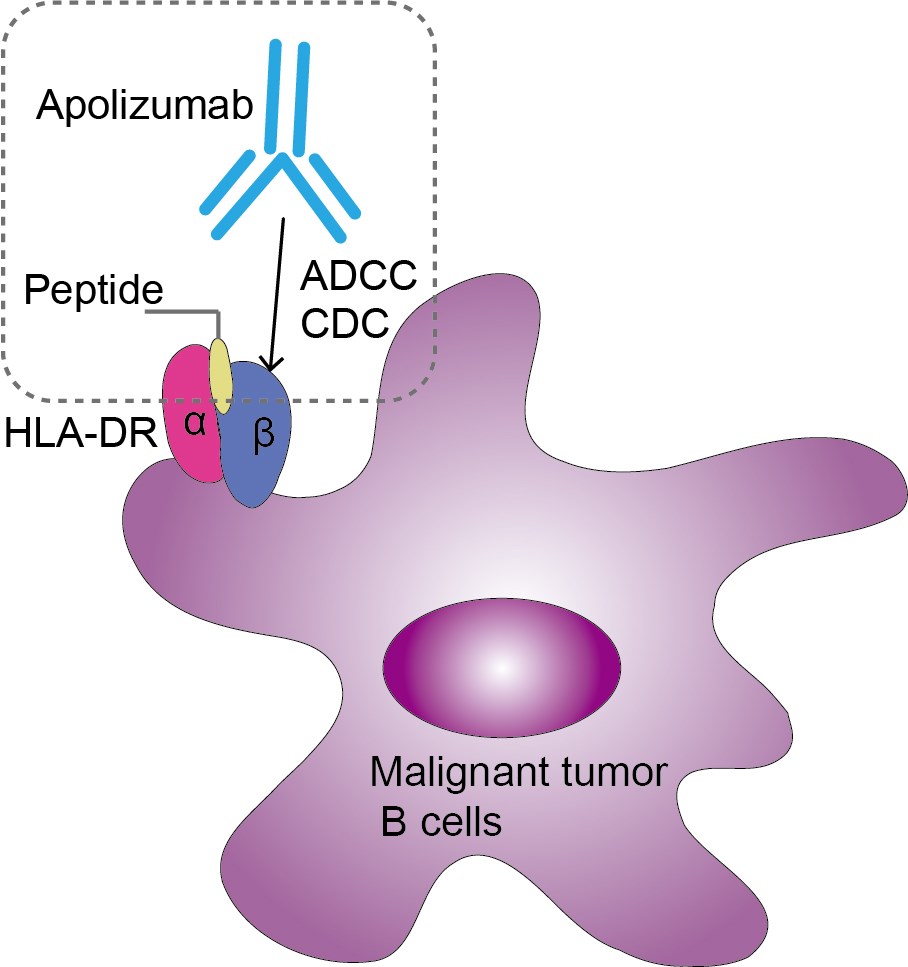Apolizumab Overview
Introduction of Apolizumab
Apolizumab, also known as hu1D10, is a humanized monoclonal anti-human antigen DR (HLA-DR) beta- chain-specific antibody. This antibody drug has been investigated in the treatment of non-hodgkin's lymphoma and solid tumors. Apolizumab showed potential therapeutic target characteristics in the screening of monoclonal antibodies against B-cell malignant tumor biomarkers in 2002. Apolizumab was then used in clinical trials of hematological malignancies. In the experiment, it was observed that apolizumab could induce caspase-independent apoptosis by secondary crosslinking in primary chronic lymphoblastic leukemia cells, and phosphorylated Syk and AKT to produce reactive oxygen species (ROS) and signal transduction. The results show that apolizumab can induce death and survival signals, and combined therapy may improve the therapeutic efficiency. Since then, a small pilot trial has been carried out with apolizumab combined with granulocyte colony-stimulating factor (G-CSF). It has been reported that granulocyte colony-stimulating factor therapy can significantly enhance the killing effect of HLA-II antibodies on lymphoma cells. The results showed that the combined treatment was feasible in clinic. Then, studies have been carried out on the dose of apolizumab in the treatment of chronic lymphoblastic leukemia. The results showed that the treatment would cause a series of toxic reactions, so the further development of apolizumab was stopped.
Mechanism of Action of Apolizumab
Human leukocyte antigen-DR isotype (HLA-DR), the target molecule of apolizumab, is a kind of major histocompatibility complex (MHC) class II molecule. Human leukocyte antigen is an important antigen in transplantation rejection. MHC Ⅱ is mainly a glycoprotein located on the surface of macrophages and B lymphocytes. HLA-DR is a heterogeneous dimer composed of αβ subunits, and the variable regions of α and β chains can recognize and bind to foreign antigens or autoantigens. The main function of HLA-DR is to present peptide antigen, inducing or inhibiting the reaction of T helper cells, and leading to the production of single antibody. HLA-DR is the most important molecule in the presentation of exogenous antigen peptide, and the expression level of it can reflect the peripheral immune status in the early stage of the disease. Apolizumab was designed to bind to the β-chain of HLA-DR, which is expressed on normal and neoplastic B cells. The main mechanism of apolizumab is to induce complement mediated cytotoxicity and antibody dependent cell mediated cytotoxicity by binding to HLA-DR β chain on the surface of malignant tumor B cells, inducing apoptosis of tumor cells.

Fig.1 Mechanism of Action of Apolizumab
For research use only. Not intended for any clinical use.
This site is protected by reCAPTCHA and the Google Privacy Policy and Terms of Service apply.

